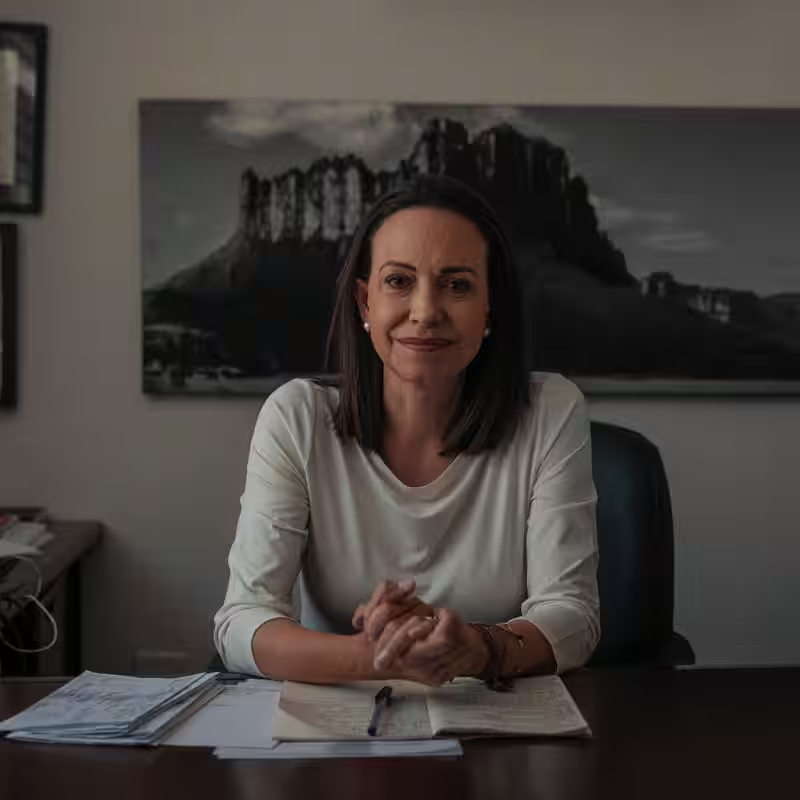María Corina Machado, Venezuela’s leading opposition figure and newly minted Nobel Peace Prize laureate, is at the center of a fierce national debate. While her award has energized supporters and drawn global attention to Venezuela’s democratic crisis, it has also intensified scrutiny over her controversial tactics—including calls for military intervention and alignment with former U.S. President Donald Trump’s aggressive policies.
The Norwegian Nobel Committee honored Machado for her work toward a “peaceful transition” to democracy. Yet her real-world strategy has often leaned on strength over dialogue, raising questions about whether peace can be achieved through force.
From Stolen Election to Global Recognition
Last year, Machado’s coalition won a landslide victory in Venezuela’s presidential election—only for President Nicolás Maduro to annul the results and declare himself the winner. Forced into hiding amid a brutal crackdown, Machado continued rallying resistance from the shadows.
Now, with the Nobel Peace Prize in hand and U.S. warships patrolling the Caribbean, her movement has gained unprecedented international leverage. But at home, public support is shifting.
María Corina Machado’s Hard-Line Approach
Machado has consistently rejected negotiations with Maduro, calling his regime a “narco-terrorist apparatus.” Instead, she has embraced Trump-era policies that many Venezuelans find troubling:
- Support for U.S. military strikes on suspected drug boats off Venezuela’s coast—despite lack of public evidence
- Backing the deportation of over 15,000 Venezuelans from the U.S., including to a maximum-security prison in El Salvador
- Advocating for harsher economic sanctions that cripple government revenue—but also deepen poverty for ordinary citizens
“You can’t negotiate with a criminal from a position of weakness,” Machado told Fox Noticias in October 2025. “The path to peace lies through liberty—and to have liberty, you must have strength.”
Public Opinion: Rising Doubts
According to unpublished polling data obtained by The New York Times, Machado remains Venezuela’s most popular politician—but her perceived ability to deliver change is fading.
| Time Period | % Who Believe Machado Can Achieve Change | % With Positive View of Machado |
|---|---|---|
| July 2024 (post-election) | 50%+ | ~60% |
| September 2025 | ~20% | ~50% |
Meanwhile, Maduro’s approval hovers at just 18%—yet his government is successfully framing Machado as a warmonger who risks national stability.
The Cost of Alignment with Trump
Once a unifying figure who promised to reunite Venezuela’s 7 million migrants with their families, Machado has grown silent on U.S. deportations—a shift that has alienated many former supporters.
“I used to get emotional when she spoke about bringing Venezuelans home,” said Josefina, a campaign volunteer from Caracas. “Now that message has been erased. It hurts.”
Experts warn that Machado’s reliance on external pressure mirrors failed strategies from Venezuela’s past. “Military interventions rarely produce lasting democracy,” said Laura Gamboa, a democracy scholar at the University of Notre Dame. “This approach may only cause the regime to dig in deeper.”
A Movement at a Crossroads
Machado’s refusal to form broad coalitions or entertain dialogue has kept her movement free of corruption scandals that plagued earlier opposition leaders. But it has also drawn accusations of dogmatism.
“Dialogue, mutual understanding, and negotiations are three words missing from her vocabulary,” said journalist Vladimir Villegas, a former Maduro ally turned critic.
As Venezuela teeters between hope and despair, Machado’s Nobel Prize may be both a lifeline and a burden—raising expectations she may not be able to meet without rethinking her playbook.




